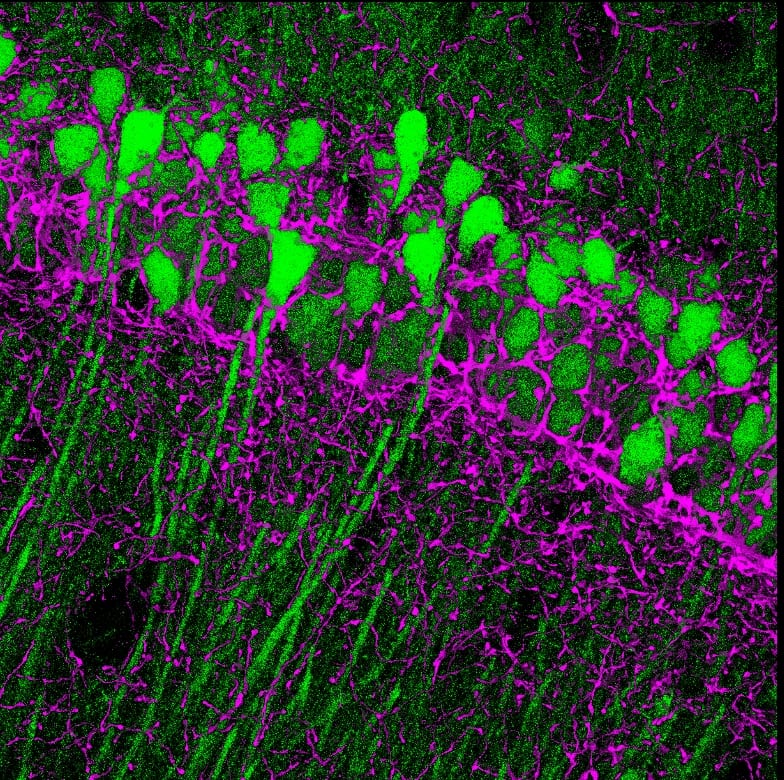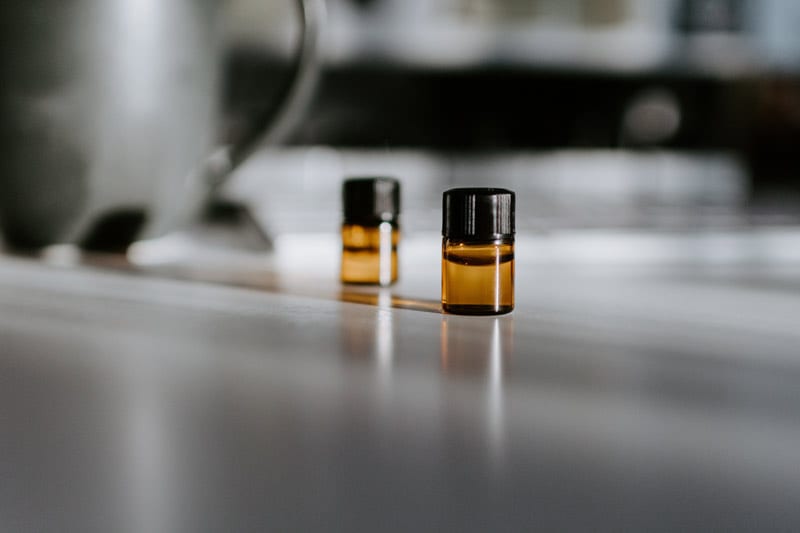Cannabidiol (CBD) has recently gained a lot of traction for its many purported mental and physical health benefits. And anecdotal evidence to support these claims is strong. People tout the products for helping with pain, sleep, and even skin conditions. The issue is that scientific proof is hard to come by. Clinical research is limited and many of the relevant studies were conducted on mice, not humans. This has led many people to wonder if the growing attention CBD is getting means the natural remedy is a true ally of health—or simply the next overly hyped natural remedy.
What is CBD?
Cannabidiol, or CBD, is a derivative from the cannabis plant. It’s one of more than 100 cannabinoids in the plant. Unlike another more famous cannabinoid, THC, CBD does not get you high. This is why the substance is gaining traction among users who have heard of the medicinal benefits of cannabis but do not want the intoxication that comes with marijuana.
It’s believed that CBD interreacts with our body’s endocannabinoid system, a large system that helps regulate physiological symptoms like appetite, mood, and sleep. The endocannabinoid system is also connected to how we experience pain. In this sense, the effects of CBD are thought to be indirect, meaning that CBD is not healing the body but rather empowering an important regulatory system to keep the body working properly. Essentially, CBD is thought to help your body achieve better balance.
People are concerned with the risks involved with CBD in large part due to the taboo nature of cannabis. But some of those fears were relieved when the World Health Organization released a paper that called CBD oil safe for human use. According to the WHO, “CBD is generally well tolerated with a good safety profile. Reported adverse effects may be as a result of drug-drug interactions between CBD and patients’ existing medications.”
Along with an endorsement from the WHO, the FDA approved CBD as an alternative medication to treat epilepsy. For years parents sought alternative ways to give children with difficult to treat forms of epilepsy cannabis extracts, largely based on anecdotal evidence. With approval from the FDA, these medications became more mainstream.
The only negative effects of CBD oil are believed to be from drug interactions by users taking other prescription medications. If you are taking medications, but would also like to use CBD, it’s important to consult your health care professional.

Addictive Tendencies and Adverse Reactions
The potential for addiction is another concern associated with cannabis. The World Health Organization stated there’s no known addiction potential associated with CBD. Similarly, studies on CBD dependence conducted on mice showed that while there was evidence of THC dependency, there was no evidence that suggests the same for CBD.
Positive Benefits to CBD Oil
Clinical trials for the use of CBD in people dealing with epilepsy have demonstrated very positive results. Studies around the substance’s ability to treat epilepsy are the most comprehensive. These studies go all the way back to the 1970s. The evidence displays a reduction in epileptic seizures in patients taking CBD for symptom management.
Another benefit of CBD may be its applications with anxiety and depression. Studies show that CBD may help people who struggle with a variety of forms of anxiety, ranging from situational stress to general anxiety disorder. It also has been found to help relieve pain and may be an alternative to prescription drugs. This combination of relief for pain and anxiety has led to speculation that CBD may help treat drug dependence, PTSD, and conditions such as Multiple Sclerosis.
In addition to treating these conditions, CBD also shows promise to help many Americans improve their quality of life. CBD may have applications with conditions like arthritis, sleep, and even diabetes. The important thing to remember, again, is that CBD is no cure-all, research is limited, and anyone considering natural remedies should talk to their doctor.
Final Thoughts
More research needs to be done on CBD, but there are many positive signs that CBD can help people feel better. The endorsement from the World Health Organization will only accelerate growing interest in the therapeutic potential of cannabis on conditions that affect so many. Just keep in mind that in any emerging space, especially as it relates to your health, it’s important to do your research and protect yourself from bad information.
Author Bio: Marc Lewis is the Executive Editor of Remedy Review, a natural health site focused on the therapeutic potential of hemp. Having previously worked in pharmaceutical advertising, Lewis is now focused on emerging health trends and natural alternative to pharmaceutical drugs.
Photo by Kelly Sikkema on Unsplash
The opinions and views expressed in this guest blog do not necessarily reflect those of www.rtor.org or its sponsor, Laurel House, Inc. The author and www.rtor.org have no affiliations with any products or services mentioned in this article or linked to herein.
Recommended for You
- How to Support Emotional Regulation in Neurodivergent Children Using Humor - January 8, 2026
- Mental Health Chatbots: How to Use Them Safely Without Replacing Your Therapist - January 5, 2026
- 3 Tools to Use Anxiety for Growth - January 2, 2026






Although the effects and benefits of CBD are still being actively researched, we can discuss what preliminary research shows. Overall, CBD has shown, in clinical settings, to help relieve convulsions, inflammation, anxiety, nausea, and other health concerns; in fact, hundreds of peer-reviewed studies indicate that CBD possesses almost unbelievable clinical potential.
The list below shows the findings that our science community has found when it comes to the benefits of CBD:
Epilepsy
CBD first came to the national spotlight when CNN’s WEED documentary highlighted how the hemp extract improved Charlotte’s conditions, a child suffering from dravet syndrome. Complementing this story, several anecdotal evidence and initial research show that CBD has strong implications to help patients with epilepsy.
Chronic Pain
Early results imply that CBD can help reduce chronic pain, especially those related to nerve pain.
Anxiety
One of CBD’s most promising implications have been in its anti-anxiety properties. Some pet owners have even report that using CBD oil on their dogs have helped treat them for anxiety issues. Early clinical trials have shown that this seems to be the case for both humans and animals.
Depression
CBD dosing experiments have shown that small dosages of CBD has an “Active” effect, which means that it actually helps you stay active and focused. Interestingly, large dosages have the opposite effect: a sedative effect. More research has to show what is the optimal dosage to take for the anti-anxiety and antidepressant effects to be optimal, but it’s something one can also experiment with to find the dosage that suits them best.
Arthritis
CBD’s benefits of alleviating joint pains has been the main reason behind brands developing topicals infused with CBD. You can find many brands who are starting to offer lotions or muscle freeze applications that include CBD.
Diabetes
The results of testing for CBD’s effects on diabetes is in a very primitive stage. However, early findings have shown that cannabinoids (both THC and CBD) can have positive effects in slowing down cell damages that are related to diabetes.
Drug Addiction, Smoking, and Alcoholism
Early clinical trials have shown that CBD can reduce nicotine addiction and have actually reduced the number of cigarettes smoked by 40%!
Thanks for sharing such a wonderful article.
The use of CBD oil is becoming increasingly common in treating anxiety and getting healthy. With so many studies to back up a person’s emotional well-being with the positive effects and advantages of CBD, it’s not really surprising why.
But it can differ depending on person to person so anyone thinking of using CBD or Cannabis should consider seeing a doctor before in-taking even a single dose.
According to https://pubmed.ncbi.nlm.nih.gov/?term=cbd+oil, third-party lab testing is a crucial component of the regulatory environment of cannabis and the cannabinoids derived from it. It is a process when a private laboratory or one not associated with a manufacturer or distributor performs scientific tests to analyze the CBD product. With this process, it gives results to customers that are honest and detailed information on the products they buy. The process includes mold, pesticides, and solvents testing, cannabinoid profiling and verification that focuses on the safety of the product for public consumption
Make sure it’s third-party lab tested like CBD products available at https://biomdplus.com/cbd-oil-for-anxiety/
I am currently using several C B D products however, and I have purchased these products from different retail sources, and on line. Question…as a consumer how do a normal everyday consumer verify the quality of the hemp oil / C B D being purchased?